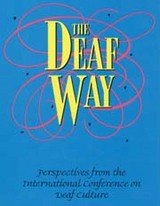

Ernest Gruening is perhaps best known for his vehement fight against U.S. military involvement in Vietnam, where he set himself apart by casting one of two votes against the Tonkin Gulf Resolution in 1964. However, as Robert Johnson shows in this political biography, it's Gruening's sixty-year public career in its entirety that provides an opportunity for historians to explore continuity and change in dissenting thought, on both domestic and international affairs, in twentieth-century America.
Gruening's outlook on domestic affairs took shape in the intellectual milieu of Progressive-era Boston, where he first devoted attention to foreign affairs in crusades against aggressive U.S. policies toward Haiti and Mexico. In the late 1920s, he was appointed editor of a reform newspaper in Portland, Maine, and moved from there to The Nation. By the early 1930s he had built a national reputation as an expert on Latin American affairs, prompting Franklin Roosevelt to appoint him chief U.S. policymaker for Puerto Rico. In 1939, Roosevelt named Gruening governor of Alaska, where for fourteen years he played a key role in the political development of the territory. In 1958 Alaskan voters elected him to the U.S. Senate, where he articulated a dissenting outlook in inter-American affairs, foreign aid policy, and the relationship between the federal government, the economy, and the issue of monopoly.
Throughout his life, Gruening struggled to reconcile his ideological perspective, which drew on dissenting ideas long embedded in American history, with a desire for political effectiveness.
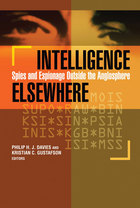
Spying, the “world’s second oldest profession,” is hardly limited to the traditional great power countries. Intelligence Elsewhere, nevertheless, is the first scholarly volume to deal exclusively with the comparative study of national intelligence outside of the anglosphere and European mainstream. Past studies of intelligence and counterintelligence have tended to focus on countries such as the United States, Great Britain, and Russia, as well as, to a lesser extent, Canada, Australia, France, and Germany. This volume examines the deep historical and cultural origins of intelligence in several countries of critical importance today: India, China, the Arab world, and indeed, Russia, the latter examined from a fresh perspective. The authors then delve into modern intelligence practice in countries with organizations significantly different from the mainstream: Iran, Pakistan, Japan, Finland, Sweden, Indonesia, Argentina, and Ghana.
With contributions by leading intelligence experts for each country, the chapters give the reader important insights into intelligence culture, current practice, and security sector reform. As the world morphs into an increasingly multi-polar system, it is more important than ever to understand the national intelligence systems of rising powers and regional powers that differ significantly from those of the US, its NATO allies, and its traditional opponents. This fascinating book shines new light into intelligence practices in regions that, until now, have eluded our understanding.
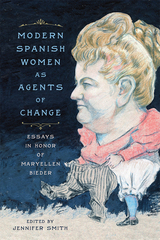
Published by Bucknell University Press. Distributed worldwide by Rutgers University Press.
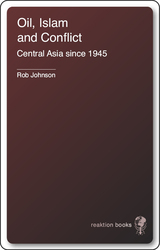
Johnson examines the problems that have plagued the region, including civil wars in Afghanistan and Tajikistan and burgeoning Islamist terrorist movements in several nations. He explains the complex role played by narcotics, ethnic tensions, and the potential wealth from oil and gas reserves in the region’s political maneuverings, and delineates the complex links between civil violence and the policies of Central Asian governments on such crucial issues as human rights, economic development and energy.
A timely investigation, Oil, Islam and Conflict will be required reading for all those invested in the threat of terrorism and the future of energy security.

This intensively researched volume covers a previously neglected aspect of American history: the foreign policy perspective of the peace progressives, a bloc of dissenters in the U.S. Senate, between 1913 and 1935. The Peace Progressives and American Foreign Relations is the first full-length work to focus on these senators during the peak of their collective influence. Robert David Johnson shows that in formulating an anti-imperialist policy, the peace progressives advanced the left-wing alternative to the Wilsonian agenda.
The experience of World War I, and in particular Wilson’s postwar peace settlement, unified the group behind the idea that the United States should play an active world role as the champion of weaker states. Senators Asle Gronna of North Dakota, Robert La Follette and John Blaine of Wisconsin, and William Borah of Idaho, among others, argued that this anti-imperialist vision would reconcile American ideals not only with the country’s foreign policy obligations but also with American economic interests. In applying this ideology to both inter-American and European affairs, the peace progressives emerged as the most powerful opposition to the business-oriented internationalism of the decade’s Republican administrations, while formulating one of the most comprehensive critiques of American foreign policy ever to emerge from Congress.
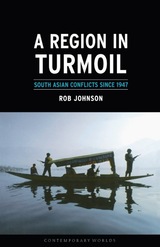
A Region in Turmoil offers a new perspective on the area, drawing together the conflicts of South Asia and examining them in local and global contexts, from the end of the Western colonial empires through today's global efforts to combat terrorism. Johnson's incisive analysis breaks down the historical and political roots of the conflicts and departs from traditional Western-centric paradigms to reveal heretofore overlooked South Asian viewpoints on the conflicts and connections among the wars. He probes the causes, contexts, and conclusions of the conflicts, ranging from the enduring insurgency in Myanmar to the struggle of the Tamil Tigers in Sri Lanka, the unrest in the Punjab and Assam states, the Bangladeshi war of independence, and the intractable struggles in Kashmir and Afghanistan.
The twenty-first century opened with South Asia front and center on a turbulent political stage: the region is not only the designated frontline for the "war on terror" but also home to the newest nuclear powers, India and Pakistan. A Region in Turmoil addresses this critical contemporary crisis with an invaluable analysis of the region and its complex history, making it essential reading for historians, policymakers, and anyone who reads the front page of the daily newspaper.
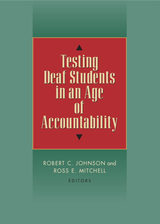
Despite the idealism represented by the No Child Left Behind law’s mandate for accountability in education, deaf students historically and on average have performed far below grade level on standardized tests. To resolve this contradiction in deaf education, this collection presents a spectrum of perspectives from a diverse corps of education experts to suggest a constructive synthesis of worthy ideals, hard realities, and pragmatic solutions. Contributors to this study include volume editors Robert C. Johnson and Ross E. Mitchell, Ed Bosso, Michael Bello, Betsy J. Case, Patrick Costello, Stephanie W. Cawthon, Joseph E. Fischgrund, Courtney Foster, Christopher Johnstone, Michael Jones, Jana Lollis, Pat Moore, Barbara Raimondo, Suzanne Recane, Richard C. Steffan, Jr., Sandra J. Thompson, Martha L. Thurlow, and Elizabeth Towles-Reeves.
These noted educators and researchers employ experiences from Massachusetts, Delaware, Maryland, North Carolina, Illinois and California to support their findings about the dilemma facing deaf students and their teachers. They assess the intent and flexibility of federal law; achievement data regarding deaf students; potential accommodations and universal design to make tests more accessible; possible alternatives for deaf student not ready for conventional assessments; accounts of varying degrees of cooperation and conflict between schools and state education departments; and the day-to-day efforts of teachers and school administrators to help deaf students measure up to the new standards. By presenting these wide-ranging insights together, Testing Deaf Students in an Age of Accountability provides a unique opportunity to create genuine means to educate deaf students for the only test that matters, that of life.
READERS
Browse our collection.
PUBLISHERS
See BiblioVault's publisher services.
STUDENT SERVICES
Files for college accessibility offices.
UChicago Accessibility Resources
home | accessibility | search | about | contact us
BiblioVault ® 2001 - 2024
The University of Chicago Press









